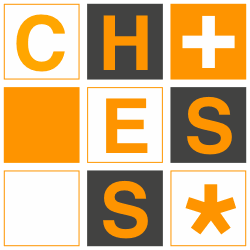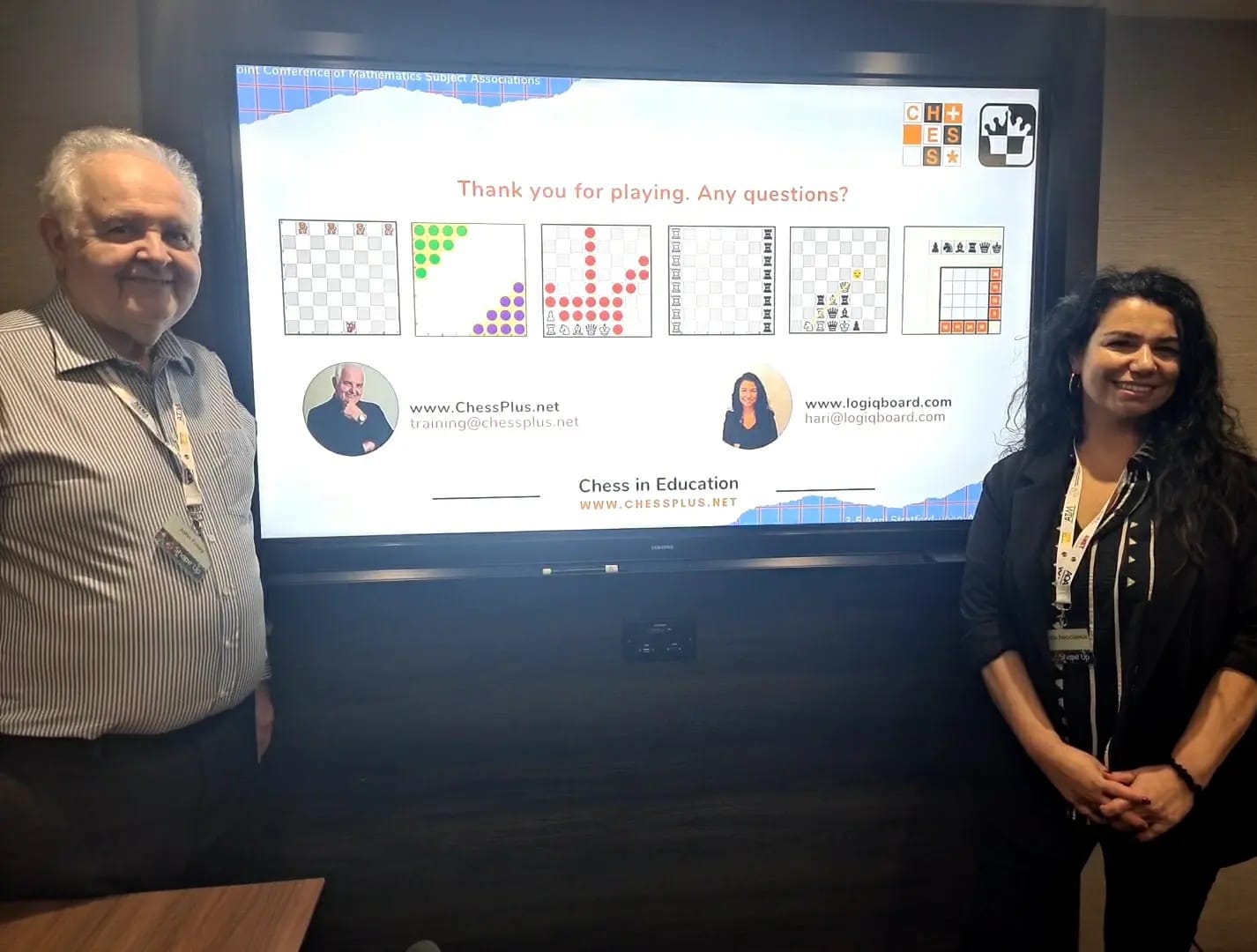Joint Conference of Mathematics Subject Associations
Stratford upon Avon
3-5 April 2024
Presentation by John Foley and Hari Neocleous
An education conference is the most welcoming environment for strategy games. Teachers are always looking for instructive games without going as far as chess. What we showed is that there are several games that are easy to learn, enjoyable to play and have mathematical underpinnings.
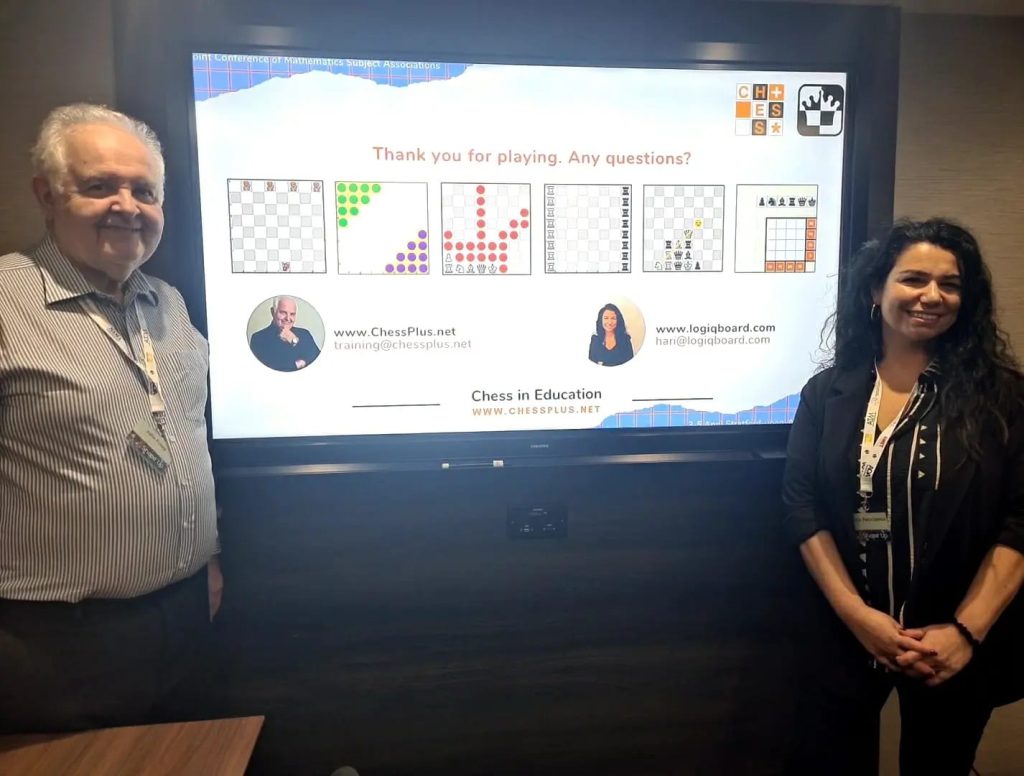
There are five organisations of mathematics teachers in the UK each of which represents a particular aspect. They all come together once a year in a joint conference which this year took place in Stratford upon Avon at the Crowne Plaza Hotel. The main theme this year was maths assessment although there were talks on a wide variety of topics, notably quite a lot of the talks related to play and games:
“Let’s Play Mathematically”
“Shape up to some unusual (shape) puzzles and games”
“Maths, motivation, metacognition, and more: Using games to support students with maths difficulties”
“The power of the double-sided counter”
We had a full morning in one of the boardrooms to present six mathematical activities on a chessboard. The session attendees were all experienced mathematics teachers and one trainee teacher. One person was also president of a chess club. We worked our way through each activity explaining its rules. We allowed enough time for the participants to play and absorb the basic ideas of each game as they were paired against each other. We presented two simple strategy games: Fox and Hounds and Halma; two mathematical tasks: the Minimum Attack Problem and the Matrix Puzzle; and two mathematical games: Sliding Rooks and Icosi. There was a lively discussion about each activity, particularly about the problem-solving strategies.
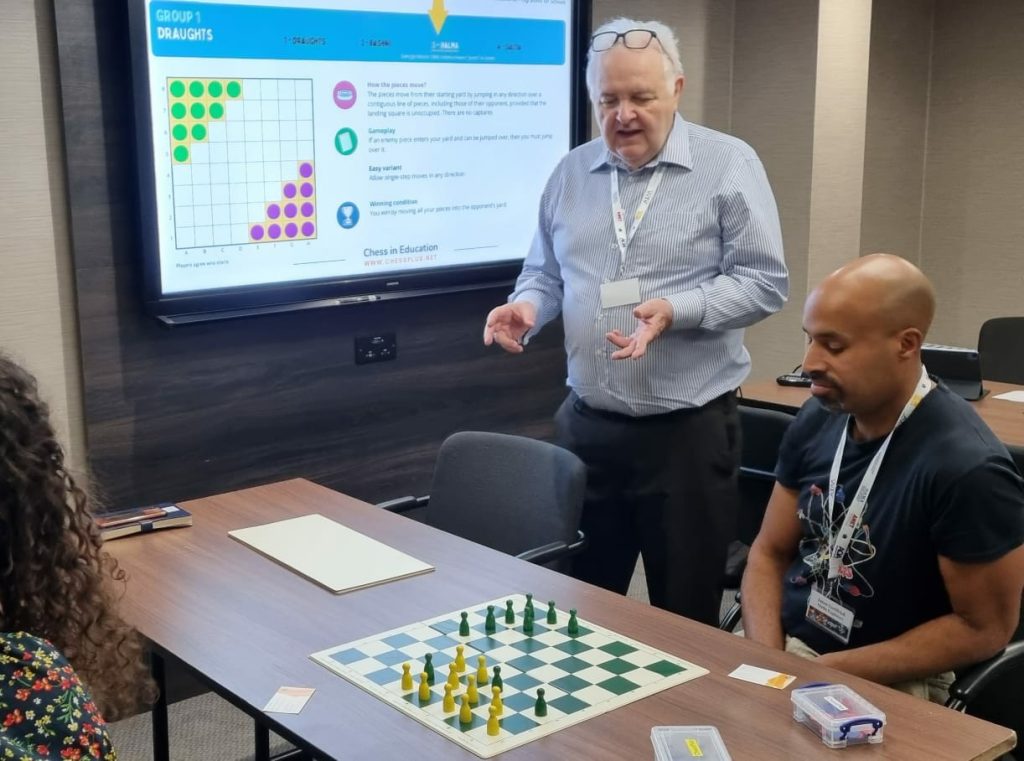
The feedback from the attendees was positive:
“Enjoyable morning, learning a different way of introducing strategy games – useful when you want to “disguise” the maths!”
“The variety of games offered give scope for use by children of all abilities with options to increase the complexity for pupils of higher ability.”
“I really enjoyed seeing how adaptive and multifaceted a chessboard could be in the classroom. I really like how simple games can be layered to introduce maths concept with a low barrier to entry. This seems especially good for disadvantaged students and I look forward to introducing it to my practice.”
“I loved the session. It blew my mind. So many great ideas with real ways to inspire mathematical thinking with play.”
During the afternoon we manned a table in the foyer with three chessboards where we demonstrated Fox and Hounds, Halma and Sliding Rooks. A steady stream of delegates came to our table to play the strategy games. Even if they had not managed to make the presentation, they were able to catch our message that strategy games are consistent with the mathematical way of thinking. The way in which Sliding Rooks can be solved using Nim theory was well received.
I was pleased to meet my old colleague Rob Eastaway from the Decision Systems Group at PWC. When I worked with Rob he devised the rating system for cricket. At one point he became the President of the Mathematical Association and has authored several books on chess.
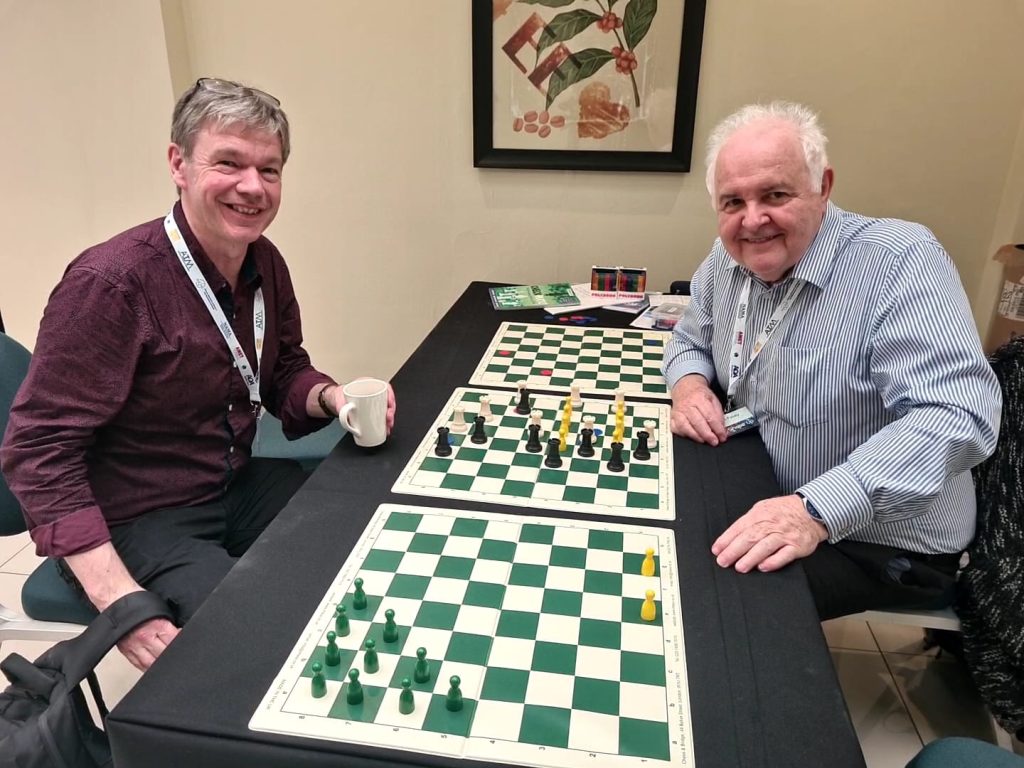
We sold a few books including Checkmate! The Wonderful World of Chess. A couple of people asked if we visit schools. Until now, this has not been the case but perhaps we will consider it at this point.
